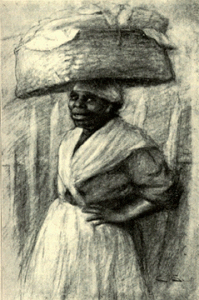Juanita continued playing maids and tribal women like this for a number of years in both film and television, with most of these roles being noncredit. Moore’s filmography between 1950 and 1958 is exactly what one would expect of a Black actress during that time. It was extremely rare for a Black actress or a Black actor to play any role of substance or even prominence.
(Film and television were strictly geared toward White audiences, forcing Black actors and actresses into caricatures. The Mammy was one of these caricatures. She was an older Black woman who is presented as a non-sexual being; she was subservient to Whites and very loyal to the White family she served.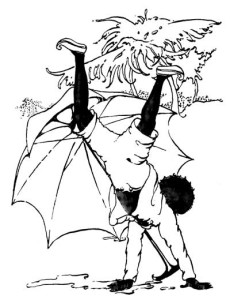 Another would have been the Sambo, a lazy, irresponsible Black man who spends much of his time singing and dancing. He is a non-threatening character to Whites because he knows his supposed place under the White man.
Another would have been the Sambo, a lazy, irresponsible Black man who spends much of his time singing and dancing. He is a non-threatening character to Whites because he knows his supposed place under the White man.
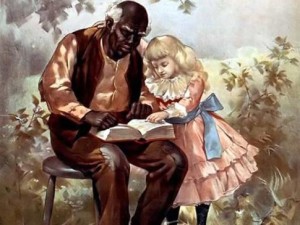 Uncle Tom was an older man who, just like the aforementioned Mammy, was very loyal and subservient to Whites. Another stereotypical role was that of the loyal servant, who did little more than happily serve his employer.
Uncle Tom was an older man who, just like the aforementioned Mammy, was very loyal and subservient to Whites. Another stereotypical role was that of the loyal servant, who did little more than happily serve his employer.
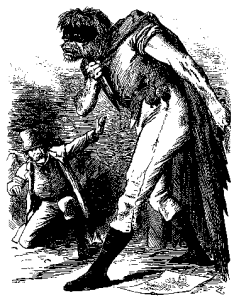 Worst of all was the Black Savage. This caricature depicted Blacks as beast-like and violent. Whereas the other caricatures were depictions of Blacks “in their place”, the Black Savage showed what Blacks would be like without the restrictions of slavery, Jim Crow Laws, and other oppression based on race. Black actors and actresses in the pre-Civil Rights Era and even into the Civil Rights Movement were restricted primarily to these roles.)
Worst of all was the Black Savage. This caricature depicted Blacks as beast-like and violent. Whereas the other caricatures were depictions of Blacks “in their place”, the Black Savage showed what Blacks would be like without the restrictions of slavery, Jim Crow Laws, and other oppression based on race. Black actors and actresses in the pre-Civil Rights Era and even into the Civil Rights Movement were restricted primarily to these roles.)
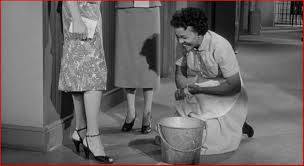
At this time in history, tensions between Black and white Americans were coming to blows. The Civil Rights movement had swept through the nation, and it should be expected that evidence of this imperative historical movement would be present in film and television media. Unfortunately, that was not the case. Any theatrical evidence of the struggle for Civil Rights was restricted to a small audience and most often performed on stage. If it were to be put into movie theatres, the theatre house would lose business and the film would fail, and if it were on television, the ratings would not be high enough to support the broadcast. White Americans determined what was shown, and they did not want to see Black people performing in roles outside of what they had been assigned. Juanita Moore played the roles she could in film and on television because they were the only ones available to her at the time. American television had yet to progress.

